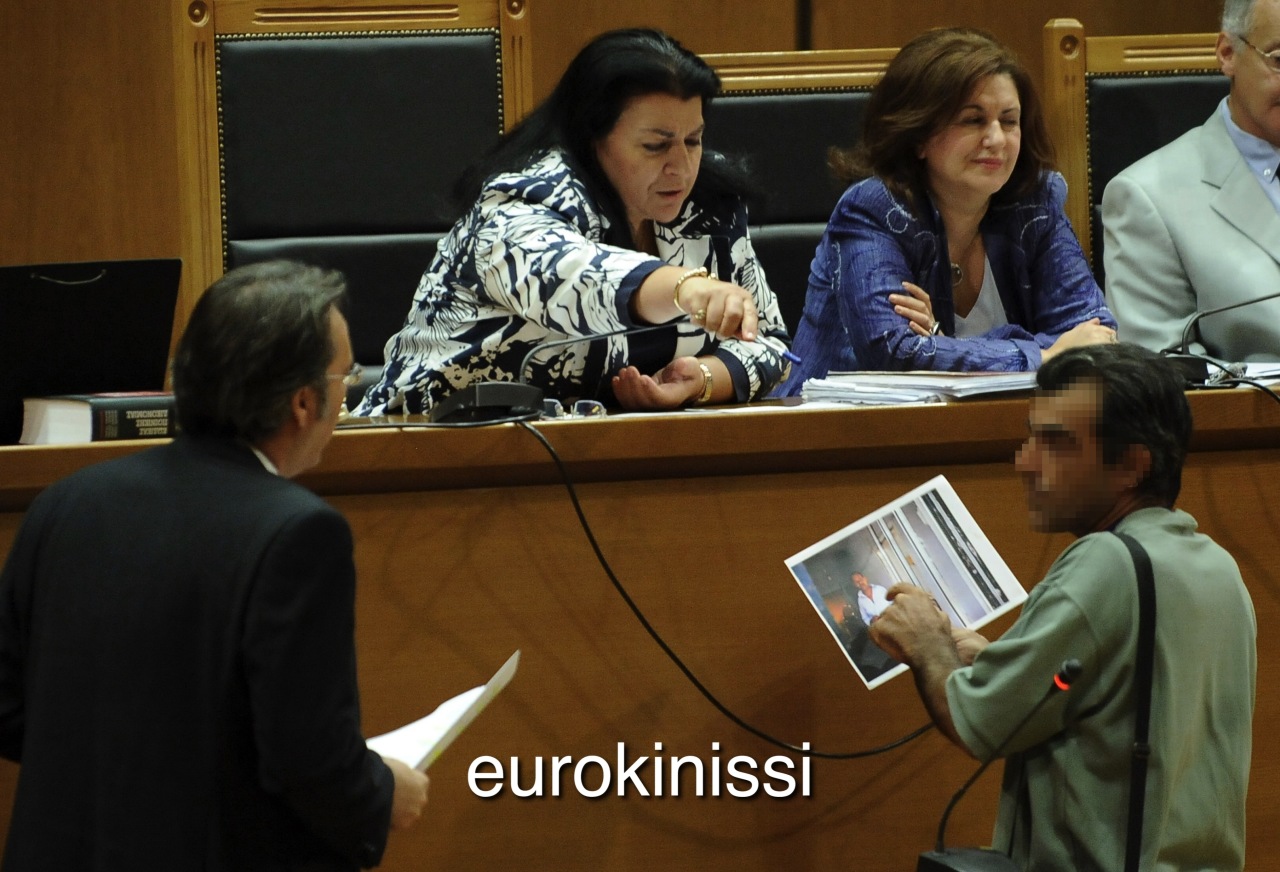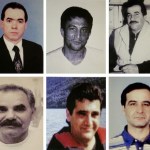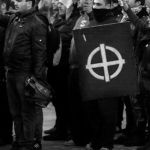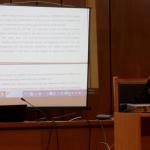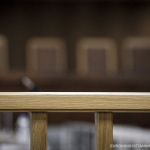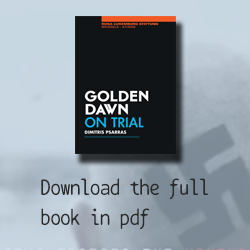87th Hearing, Court of Appeals, September 23rd, 2016
1. Access to the Court
The courtroom remains open to the public upon presentation of a state ID card, which is retained by court authorities for the duration of the session. There was significant audience attendance, and the presiding judge frequently asked for order in the courtroom; for members of the audience to refrain from staring and gesticulating to others; and that no spectators wear hats, hoodies, or sunglasses. There was marked tension in the courtroom today.
2. Presence and representation of the defendants
Present at the hearing were four (4) defendants (for the Egyptian fishermen case). Twenty-eight (28) defendants were represented by their counsels, and the rest were recorded as absent.
3. Continuation of cross-examination of witness Abou Hamed Saad by the defense counsels
The defense counsels questioned the witness regarding his credibility, the reality of what happened on the night in question, and the severity of the injuries sustained by Abouzide Embarak. Defense counsel Karydomatis (for Evgenikos and Pantazis) asked questions regarding the witness’s lines of sight inside and outside the house, and why he didn’t identify the defendants before the start of the trial. The witness answered that he feared for his life because he didn’t know if the assailants would get arrested. He also said that he hadn’t been attacked before the incident, and that after the attack he was very afraid when he went out on the street. The defense counsel posed a series of questions centered around the fact that “no one heard” about attacks to other shops run by Egyptians until then, and the answer was “I don’t know what they [:the assailants] had in mind”.
Defense counsel Poulia (for Th. Marias) exhibited photos of the scene of the attack and tried to show that the area was insufficiently lit, limiting the witness’s visibility. The witness pointed to a streetlamp that throws light on the street and is situated directly opposite his house. Responding to a similar question the witness confirmed that the street that the assailants headed to after their retreat from the house was visible from the roof of the house. He also stated that many neighbors came out after the incident and that Abouzide was carried down the stairs. The same defense counsel posed some questions about the legality of Abouzide’s stay in Greece, before and after the incident, at which point the presiding judge intervened to say that the matter does not concern the witness. The defense counsel requested that Ahmed Abou Hamed bring to court a health certificate and passport, saying that “it is suspected that he is in Greece and working in his shop”.
Defense counsel Oplantzakis (for Kazantzoglou) asked questions regarding Abouzide Embarak’s former employer, and whether they had any differences over unpaid wages. The witness stated that he didn’t pursue the matter. The defense counsel also asked about the attacking group’s modus operandi on the night in question and how it is connected to Golden Dawn, and the witness answered that “no Greek had ever attacked immigrants, before they [:Golden Dawn] started doing it”.
Defense counsel Velentza (for Kazantzoglou, Stefas, and Kalaritis) wondered about the reason that Abouzide Embarak was sleeping on the roof, given that he had no residence permit in Greece, and whether the three brothers had signed a rental agreement for the house.
Defense counsel G. Michalolias (for Koukoutsis) asked the witness if the witness could see well his brother in the room despite the fire extinguisher dust, and how he can be sure that the assailants were members of Golden Dawn.
4. Testimony of witness Konstantinos Tatsiopoulos
The witness was a neighbor of the brothers Abou Hamed on the night the attack took place. He stated that he is a delivery man working for a courier service, that he is living in a ground floor apartment in Perama, at 19 Sofouli St., at he corner of the street where the fishermen’s house was at 32 Sofouli St. Across the street from number 32 there’s a small park, and next to it there’s the fence bordering the plot where the Shell storage tanks stand. His house is 50 m. from the Egyptians’ house and has a direct line of sight to it. On the night in question he was watching a movie in his house with a friend, and around 3 am they heard the sound of glass breaking. They got out because they thought their cars were being stolen. A few other people, relatives of his, came out on the balconies of the apartment block. At the corner of the street they saw 10-15 persons dressed in black shouting “gibberish” and holding nothing. He also said that the street is dark, and that the streetlamps have been broken for years. When these ten or fifteen people left, he and his friend approached to see what happened and saw that the front window of Ahmed’s car had been broken and his tricycle had been overturned. The police arrived almost immediately and later they told him to go to GADA [:the Attica General Police Directorate] to testify as witness. He didn’t make out faces or characteristics, but he did recall that the group were “youngsters” wearing dark clothes and shorts. He didn’t see a woman among them. He went on to state that the street is dark, and that there is a streetlamp only at the far end, at the other side of the street. The perpetrators didn’t damage any other cars despite the fact many were parked nearby. When he went near the fishermen’s house he saw that the door’s glass window had been broken, probably by a stone. He wasn’t the only one that approached the house, there were other neighbors as well. He stated that he didn’t know their surnames, just some of the first names. At that point he saw two of the fishermen carrying on their shoulders a third man who had passed out, blood running down his face, and one of them said “Golden Dawn attacked us”. The gathered people dispersed fast and the witness was taken to testify and identify but he hadn’t seen any faces, because “at night you get suspicious, and I’m a peaceable man”.
The presiding judge pointed out to the witness that his testimony showed significant differences compared with his first two testimonies, the first one in GADA a few hours after the incident and the second one in November 2013 before the Investigators at the Court of Appeals. More specifically, he had testified that he saw ten people causing damage to the vehicles and that he saw “a group of thirty people, ten of them had broken the windows in Mohammed’s car and were trying to overturn it”. The witness answered that indeed he had seen 2-3 people trying to overturn it, but they left quickly. He then added “well, 30 people, they must have been 15, I was tired and hadn’t slept”. The presiding judge then read from his earlier testimony “I saw more people come out of the Egyptians’ house and from the street that leads to the mountain, and there were 40 in total and they were running down the hill to get away”, telling the witness “there’s a big difference between 10 and 40”. The presiding judge also pointed out that in a previous testimony the witness had stated that the assailants had been holding clubs and crowbars, and he refused ever having said that. Regarding his previous testimonies, he was asked “what did you mean when you said they left all together and composed?” and he answered “I just said so”. Responding to a relevant question he answered that the neighborhood never had a problem with the fishermen, “apart from the smell of fish”. The presiding judge asked the witness if he recognized anyone in the dock, and he answered in the negative.
Responding to questions by the state prosecutor, the witness answered that he didn’t hear anyone giving orders and that he has never been threatened, and that he’s not afraid. The state prosecutor clarified that his testimony in court diverges significantly from his earlier testimonies, repeating the facts pointed out earlier by the presiding judge, adding that “I find you a bit hesitant today”.
The assistant prosecutor told the witness that when he testified to the civilian investigators he said “from what we saw and from what Mohammed said we thought they were Golden Dawners”, and asked him what was it that he saw and thought this. The witness answered “I didn’t see anything definite, they were just running as a group, it was my own assumption. At the time we had seen many reports in the media about certain Golden Dawn people running around and doing stuff”. The members of the court pointed out to the witness more contradictions, such as the number of the sounds he heard, and he answered “I don’t know, they must have written it down like this, or I might have exaggerated at the time. I saw no crowbars, the only thing that’s correct is what happened to the van”.
Responding to questions from the civil action counsels (Zotos, Skarmeas, and Papadakis), the witness stated that at around 02:30 am he had gone for a walk with his girlfriend to the kiosk. He didn’t see the stones, but he supposes that they were used to break the windows and door. The witness stated that none of the neighbors said anything at that time, probably because they were afraid. Regarding the number of people, he said that they were about 15 of them in total. He couldn’t identify them as members of Golden Dawn, adding that “they were wearing dark clothes, yes, but they were also wearing shorts”. The witness stated that he had heard about Golden Dawn in the media, what was on TV at the time, that it was “an organization that does stuff, not for a single issue, but for various issues”. The witness is a resident of Perama and from the local MPs he knows only I. Lagos. He had heard of the Fyssas murder, but hasn’t heard of any other attacks in Perama. Responding to a question about whether he was asked to go to GADA to testify instead of at the local police station, the witness stated that after the incident he ran into an acquaintance of his, Mr. Maroulakis, Police Commander of Perama, and that he told him that he must testify in GADA. Responding to a question about whether he knows of any Golden Dawn members in the area, he answered that he knows some of them because he frequently went to take food supplies that they were handing out from a basement under the Golden Dawn offices. Regarding the things he has heard about Golden Dawn, he stated that “I don’t have an opinion on the matter, I heard that they had been helping people and that they were handing out food, and I said they must be good people, and then we heard they were doing stuff. I don’t know what to say, I have no opinion on the matter.” Civil action counsel Papadakis asked of the witness to state for the court the surnames of the ten neighbors, give or take, that had been present at the incident, or to at least seek those people in their residences, and bring them to testify as witnesses before the court. The same civil action counsel wondered how all these people woke up from a single noise, and pointed out to the witness certain contradictions in his court testimony compared to his earlier testimonies, such as that he had stated that he saw them damaging the cars and that he saw the bumps on the cars. Responding to a question about whether he had any other contact with Golden Dawn aside from the food distribution, the witness replied in the negative, and immediately he was asked “then why would you think they were Golden Dawn, since you said a while back that they were good people?” The witness answered that he has never heard negative things about their activity. Papadakis then asked “why are you hesitant, really, what’s the matter? Are you afraid of something? Everyone said so today, and you have changed your testimonies”. The witness answered that “no, I’m not afraid about anything. The night this happened I was without sleep and tired, then they took me to the police station, then to GADA, I could have said something that you are now misunderstanding”.
At this point (14:56) the hearing was adjourned until Tuesday, September 27th, 2016, for the continuation of cross-examination of witness Konstantinos Tatsiopoulos.

